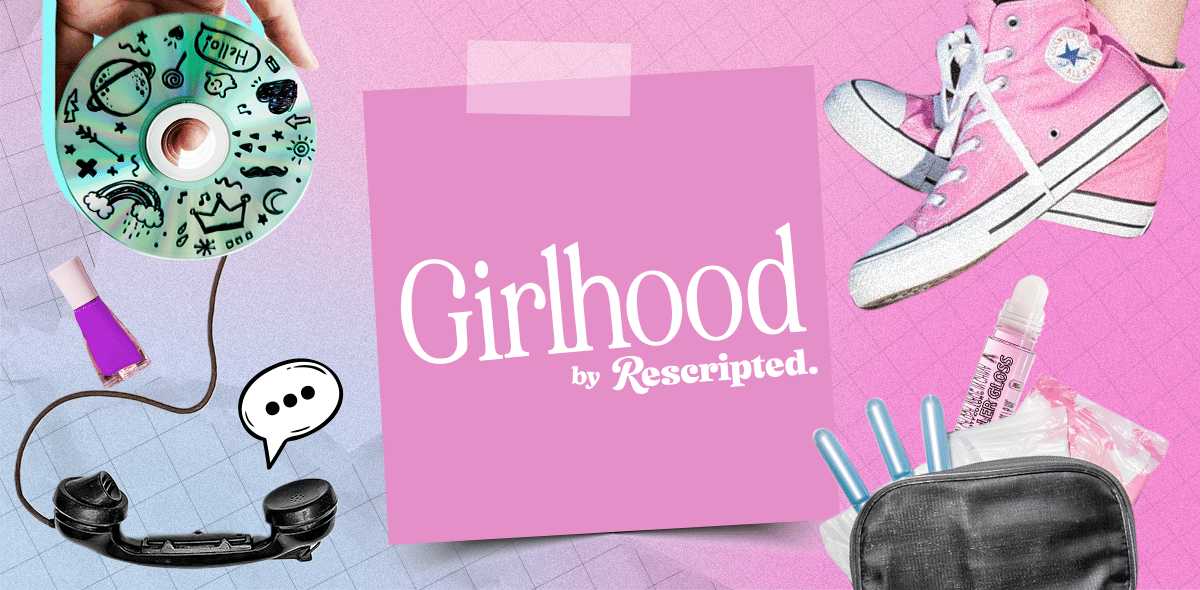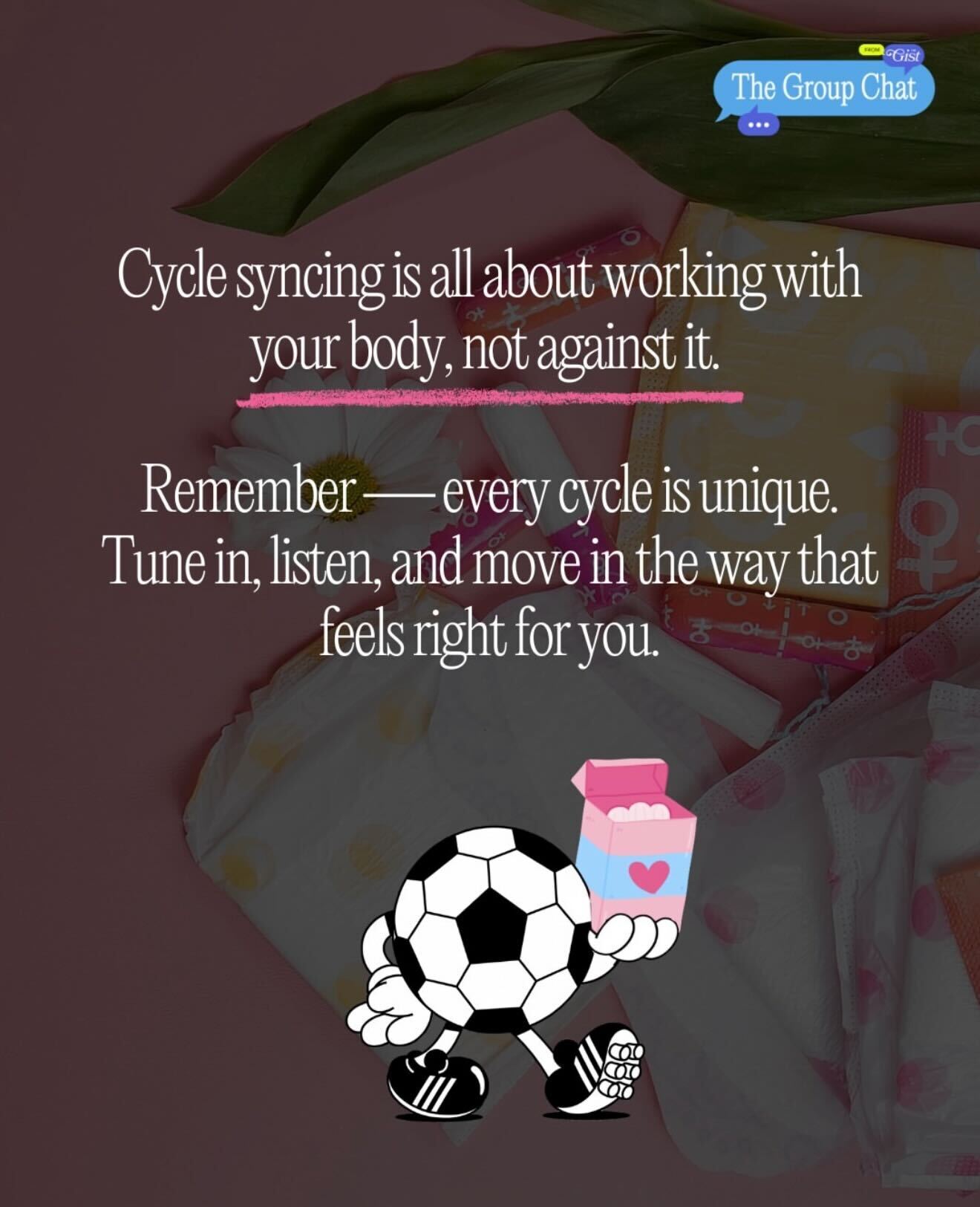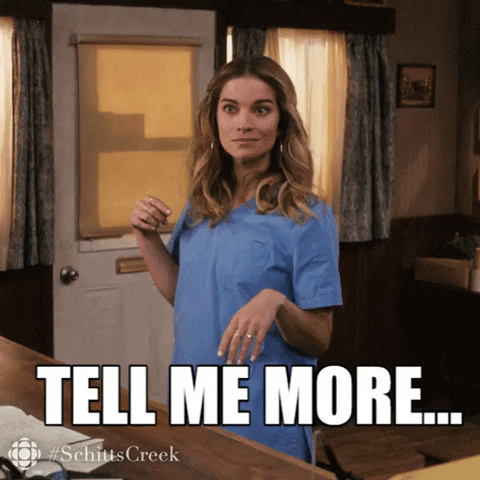- Girlhood
- Posts
- Big Hair Care Energy (Side Part Intact) 💇🏻♀️✨
Big Hair Care Energy (Side Part Intact) 💇🏻♀️✨
Plus, Cycle Syncing Isn’t Magic ~ It’s Self-Awareness

Hi friend!
I'm not gonna lie: until recently, I never really thought much about hair care. I’ve always had thick, shiny hair, and I coasted on that. Shampoo, conditioner, maybe a brush if I remembered — that was my whole routine. No masks, no scalp serums, no detox treatments. Healthy-looking hair kind of just… happened.
But after three babies, my late-30s hair is staging a revolt. From postpartum shedding to an itchy scalp that showed up about six months in — it’s been humbling, to say the least.
One sleepless night, I started Googling and discovered a whole world of scalp care: shampoos that “detox,” serums that “restore,” scrubs that “stimulate.” Trust me, I know the haircare industry just wants to make money off me. But if a product here and there makes me feel better (and less itchy), I’m okay with it. Meanwhile, I’m standing here with my CeraVe and my $8 drugstore shampoo, realizing scalp care is apparently the new skincare, and somehow I missed the memo.

Listen, I don’t expect miracles, but there’s something exciting about taking five minutes for me, to care for this part of myself I’ve always ignored. Motherhood has a way of teaching you that even the smallest rituals (the masks, the serums, the pumpkin-spice latte runs) can feel like little acts of reclamation. Simple reminders that I’m still me, under all the giving.
Will I ever fully master hair care? Probably not. Will I ever give up my side part? Definitely not. But maybe, just maybe, I’ll find a happy medium between my low-maintenance roots and this new world of scalp TLC.
Ask Clara: Is there a way to stop postpartum hair loss?
💌 But first: Can’t find Girlhood in your inbox?
Check Spam or Promotions, drag us back, then add [[email protected]] to your contacts and ⭐ it, so we always land right where we belong.
🫶🏻 Even More Important Than Looking Cute? Being Kind.
You know that sinking feeling after scrolling Instagram for 20 minutes and realizing everyone else’s life is “perfect”? Lately, every time I open the app, there’s something new (and usually contradictory): one post promises five ways to balance your hormones, the next shows a mom flawlessly juggling work, toddlers, and gluten-free muffins, and then — just when you think it can’t get any more chaotic — there’s a post about “de-influencing,” calling out how wellness trends have completely spiraled. It’s exhausting. And let’s be real: it’s not doing our stress levels any favors.
Here’s the twist: real-life good — checking in on a friend, helping a neighbor, volunteering — actually lowers stress, improves heart health, and boosts mood. Unlike scrolling, it comes with measurable health perks.
Science backs it up: acts of kindness reduce cortisol (that pesky stress hormone) and can even strengthen your immune system. No filters, no hashtags, no likes required. Just real human connection.
Scrolling won’t fix anxiety, but sending a thoughtful message, holding a door, or helping someone without expecting anything back? That actually works. In a world of “perfect” wellness routines and curated parenting moments, kindness is something tangible you can control, and it actually improves your health.
Social media might make you feel small, anxious, or inadequate, but being a genuinely good human offline? That’s a stress-busting, mood-boosting win every single day.
📬 Your friend’s cool for forwarding this, but don’t wait — subscribe to Girlhood, and get the real talk first, straight to your inbox.
🩷 Cycle Syncing, AKA the Art of Listening to Your Body
Women’s health is nuanced. Hormones shift, energy ebbs and flows, and every body is different. And yet, every time a new trend hits social media, suddenly everyone’s an expert. Case in point: cycle syncing.
We teamed up with The Gist, and reactions were… intense. Some treated it like gospel; others insisted science has “debunked” it. The truth? It probably falls somewhere in between.
Cycle syncing is the idea that your workouts, meals, and self-care can follow your menstrual phases: menstrual, follicular, ovulatory, and luteal. Some people swear by it — tracking energy, scheduling high-intensity workouts when estrogen peaks, slowing down when PMS hits — because hormones really can influence energy, recovery, and how hard a workout feels.

But the research? It’s mixed. A 2020 review of 46 studies found some women fatigue less in the luteal phase, others in the follicular. Results vary depending on exercise type, muscle groups, and how phases are measured. Translation: your body might not match the “textbook”—and that’s totally fine.
Here’s a quick cheat sheet:
~Menstrual: Gentle yoga, walking, restorative stuff (Netflix optional).
~Follicular: Higher-intensity workouts, strength training, longer runs.
~Ovulatory: Peak performance possible — HIIT, powerlifting, sprints — but watch those joints.
~Luteal: Lower-intensity cardio, pilates, mobility, recovery work.
Cycle syncing isn’t a strict rulebook. It’s a tool to notice patterns, stay consistent, and make exercise feel a little more supportive. Some days you'll crush it. Some days you'll lounge on the couch with a heating pad. Both are fine. The real win? Learning to trust your body, honor its signals, and move in a way that actually feels good — because that’s how lasting fitness, energy, and self-care happen.
💿 Okay, 90's kids, be honest — what was your AIM away message vibe back in the day? |
💸 Want to share your perspective — and get paid for it? 💸
We’re building a team of women who will review content and ideas for Rescripted. Every time you complete a 2-minute review, you’ll earn $5. Your feedback helps us make women’s health content more real, relevant, and impactful.
👉 Click here to join our team.
Thank you for lending your voice and helping us shape the future of women’s health 💜
Here’s to the Conversations We’re Not Supposed To Have 👩🏻🤝👩🏿
This morning, I was at the bus stop, scrolling and half-lost in thought, when one of the moms casually mentioned her recent surgery. Ten minutes later, we were knee-deep in a conversation about IVF cycles, endometriosis, and PCOS — basically all the things no one really plans to unpack at 8 a.m. on a sidewalk. And yet, there we were, swapping stories like old friends.

A few hours later, at my favorite little boutique, it happened again. One offhand comment about me giving birth nine months ago turned into a twenty-minute back-and-forth on fertility struggles, menopause, and the weird ways our bodies can betray us.
It always amazes me how quickly opening up can transform a passing moment into something real. There’s something quietly radical about admitting struggle in spaces where you could just smile, nod, and move on. It’s messy, sometimes awkward, but it’s also freeing. When you share, you break isolation. You remind yourself you’re not the only one. You turn strangers into allies, even if just for a few minutes.
Another reminder? Every woman has a story. Every body is different. And truthfully, it’s often more likely for things to go wrong than for everything to go perfectly right. That doesn’t make us broken; it just makes us human.
So, here’s to opening up, to having the messy conversations, and to the connections that linger long after the moment has passed.
Ask Clara: How common are fertility issues?
xo,
Kristyn
🩸 Never Miss a Women’s Health Signal
Want Rescripted to pop up in your Google Top Stories? Add us as a preferred source, and stay ahead on everything from periods to to pregnancy to perimenopause.
👉 Add Rescripted on Google here.




Reply